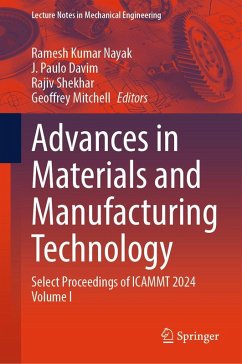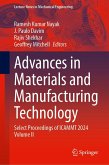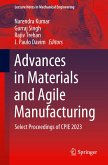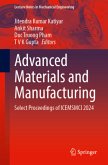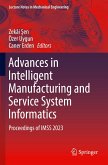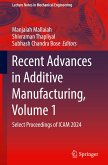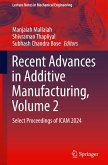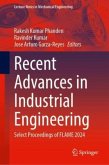This book comprises select proceedings of the 3rd International conference on Advances in Materials and Manufacturing Technology (ICAMMT-2024). Functional materials, smart materials, and intelligent materials stand as foundational elements in twenty-first-century technology, irrespective of their designation. The evolution of modern structural materials reflects an unprecedented trajectory of scientific and technological progress. The book discusses the latest materials, manufacturing processes, evaluation of materials properties for the application in automotive, aerospace, marine, locomotive, and energy sectors. The topics covered include advanced metal forming, bending, welding and casting techniques, recycling and re-manufacturing of materials and components, materials processing, characterization and applications, multi-physics coupling simulation, and optimization, alternate materials /material substitution, thermally-enhanced processes, and materials, composites and polymer manufacturing, the fabrication process of nanomaterial, powder metallurgy and ceramic forming, numerical modelling and simulation, advanced machining processes, functionally graded materials, non-destructive examination, optimization techniques, engineering materials, heat treatment, material testing, MEMS integration, energy materials, bio-materials, metamaterials, metallography, nanomaterial, SMART materials, application of AI and ML in advanced materials, automation, and superalloys. In addition, it discusses industrial applications and cover theoretical and analytical methods, numerical simulations and experimental techniques in the area of advanced materials and their applications. The recognition of benefits restricting from advanced materials and structures transcends various applications. Smart systems offer a streamlined approach to controlling material and system characteristics by autonomously adapting to environmental changes. Mechanistic comprehension across disciplines is paramount for developing materials with capabilities that surpass current standards. Our conference serves as a cross-disciplinary summit, transcending organizational and global barriers to integrate research and education in the vital field of advanced materials. We focus on major sectors including advanced processing, material characterization, modelling and simulation, properties, performance, and device fabrication, aiming to overlay the way for the next wave of scientific and technological advancements.
Bitte wählen Sie Ihr Anliegen aus.
Rechnungen
Retourenschein anfordern
Bestellstatus
Storno

